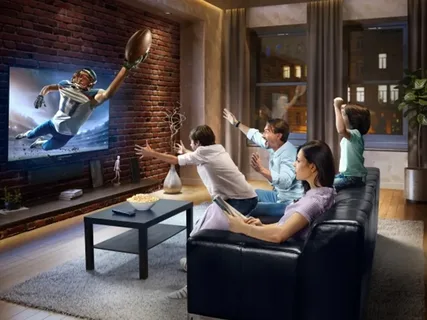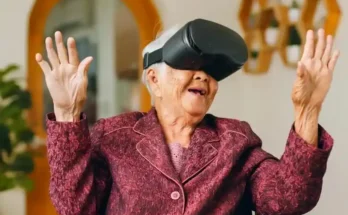Entertainment is not just about killing time or chasing a laugh. At its core, it’s a deeply human need—a way we express ourselves, escape from stress, and explore ideas beyond our everyday realities. Whether we’re immersed in a gripping story, dancing to a catchy song, or binge-watching a show at 2 a.m., entertainment offers more than fun. It gives us meaning, reflection, and sometimes even transformation.
Entertainment is an evolving mirror that reflects our dreams, fears, desires, and collective cultural shifts. It is the language of imagination, crafted for both distraction and depth. We don’t just consume it—we participate in it.
A Short Journey Through Time:
Long before Netflix, TikTok, or streaming services, humans gathered around fires and shared tales. Stories of gods and monsters, of love and loss. These stories entertained, yes—but they also taught, warned, and preserved history. This oral tradition was the original theater, the first cinema of the mind. It is storytelling that made humans unique among all species. We didn’t just survive; we crafted narratives to explain the stars, the seasons, and the mystery of being alive.
Even today, every form of entertainment—from movies to podcasts—carries echoes of this ancient impulse: to tell a story that moves people.
As civilizations grew, so did the sophistication of their entertainment. The Greeks gave us epic dramas. The Romans built arenas for gladiators and chariot races. In medieval times, jesters, poets, and traveling performers became the heart of public amusement. The theater evolved into an art form, where actors could make audiences weep, laugh, and ponder life—all in a single act. The stage wasn’t just a platform—it was a portal. Entertainment had transformed from mere storytelling into performance. A shared experience that created collective memory.
The Golden Age of Screens:
The invention of the motion picture was a revolution. Suddenly, stories could move, speak, and captivate in ways never imagined. Silent films gave way to talkies, black-and-white to technicolor. Hollywood rose, and the silver screen became a global dream machine. Movies became more than just entertainment. They became events. A trip to the theater was magical—a dark room filled with strangers, hearts beating to the same soundtrack. Cinema gave us heroes, villains, epics, romances, and rebellions. It allowed us to live hundreds of lives in just a couple of hours. That’s the power of entertainment—it lets us feel everything without the consequences.
Television brought the magic home. Suddenly, families gathered around a glowing box, not a fire. News, sitcoms, game shows, and dramas became staples of daily life. TV didn’t just entertain—it shaped culture. With each decade, television mirrored society’s growth. It introduced diversity, tackled taboos, and sparked conversations. The sitcoms of the ’90s became family. The reality shows of the 2000s redefined fame. The streaming era of today shattered all limits.
We are now in a golden age of storytelling, where your next favorite story is always just a click away.
The Universal Language of Emotion:
-
Rhythm That Resonates
Music is entertainment in its purest, most emotional form. It needs no translation. A melody can make you cry, dance, or fall in love—all without a single word.
Across all cultures and times, music has accompanied celebrations, rituals, revolutions, and revolutions of the heart. From the haunting hum of a violin to the heavy drop of a bass line, music molds the emotional landscape of our lives.
We all have soundtracks to our memories. A breakup song. A wedding song. A road trip anthem. In this way, music is both a private refuge and a public celebration.
-
Technology and the Sound Revolution
The way we consume music has changed dramatically. From vinyl to cassette, CD to MP3, and now streaming on demand—music has become more accessible than ever. Anyone with a phone and a pair of headphones can access the entire musical history of the world.
Yet with this access comes something deeper: discovery. We now mix genres, cultures, and languages freely. Entertainment has become a bridge—bringing people from every corner of the globe into a shared rhythm.
The Rise of Interactive Escape:
-
From Pixels to Immersion
Video games were once considered toys for kids. Today, they are billion-dollar industries, artistic masterpieces, and cultural phenomenons. Games don’t just entertain—they immerse. They create worlds you can walk in, choices you can make, and consequences you must live with.
Gamers don’t watch the story—they live it. They are the heroes, the builders, the explorers. Entertainment has never been so interactive.
Modern games explore themes once reserved for books and film: morality, grief, identity, power. They challenge, inspire, and connect millions in virtual arenas.
-
Community Through Play
Online gaming has redefined friendship. From co-op missions to massive multiplayer online worlds, people now bond through pixels and headsets. For many, games are more than escape—they’re where belonging begins.
And as eSports rise to rival traditional sports in viewership, it’s clear: games aren’t the future of entertainment. They are now.
Entertainment in the Age of Infinite Choice:
-
The Paralysis of Options
Today, entertainment is everywhere, all the time. We scroll through endless content, jump between platforms, and often struggle to choose what to watch, play, or listen to. Paradoxically, the more choices we have, the harder it is to feel satisfied.
This saturation can dilute the magic of entertainment. When everything is available, what feels truly special?
Yet it also offers a rare opportunity. To be selective. To seek quality over quantity. To find the stories that actually stir something inside.
-
Curation as a New Art
In the age of streaming, playlists, and algorithms, curation has become an art form. The right recommendation, at the right moment, can change your day—or your life.
Creators, influencers, and fans alike now play the role of cultural guides. Through reviews, lists, and social sharing, we help each other navigate the ocean of content. Entertainment has become a collective act—chosen, shaped, and shared by all of us.
Why Do We Always Need Entertainment?
Entertainment lets us forget—and remember. It takes us away from our problems and also shines a light on them. It helps us grieve, heal, dream, and laugh when we need it most. It’s more than consumption. It’s communion. With ourselves, with each other, and with something greater.
Behind every game, song, show, and performance is a heartbeat. A person with something to say. A desire to connect. A wish to be heard. And in that connection, we find not just amusement—but truth. Because the greatest form of entertainment doesn’t just make us look away from life. It helps us look deeper into it.
Conclusion:
Entertainment, at its best, is a celebration of humanity. It’s joy and sorrow, light and shadow, laughter and learning. It gives us moments that matter and memories that linger.
In a fast-changing world, where chaos is often just a scroll away, we turn to stories, music, games, and screen-time sanctuaries not just for fun—but for freedom.
Because when we’re entertained, we’re not just passing time. We’re reclaiming it.




